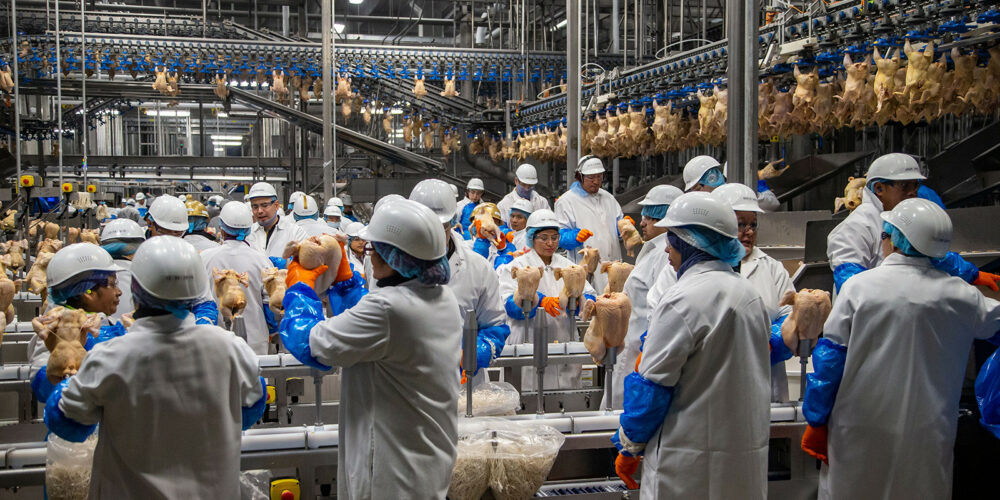On June 25th last, the Cabinet took the decision to proceed with Stage 3 of the “Roadmap for Reopening Society and Business”. It is abundantly clear that public health concerns have not been the priority in taking this decision. The rhetoric of “getting the economy up and running again” has grown louder as a false sense of security has taken hold due to the falling numbers of new cases and coronavirus-related deaths. One only has to look across the Atlantic to see the consequences of the “getting things back to normal” mantra: a marked spike in cases in some of the most populous states like Florida and Texas. Once again, the government has had portents from other countries on the rapid propagation of the virus to learn from. Instead, the interests of capital have prevailed on numerous fronts: reducing the number of stages in the roadmap, accelerating the reopening of the hospitality and tourism sectors, and scrapping the two-metre social distancing regulation.
In stark contrast, socialist countries and other states where communist parties are in government (Cuba, China, Vietnam, Kerala in India) have had more success in containing transmission of the virus. China, for example, was able to respond quickly to a new cluster of Covid-19 cases detected in Beijing. What we can draw from this is that the precipitous reopening of economic life in this State is not simply a policy choice: the needs of the system demand it. The bourgeoisie is acutely aware of business debts that must be serviced. As previously documented in the Socialist Voice, capitalism was already facing a crisis before the pandemic struck: it simply cannot cope with this departure from an optimal business environment. Profits come before lives. The employer lobby group IBEC made its way into the broadsheets demanding that the State offer SMEs a bailout so they can “trade their way back to viability”.[1] The Irish ruling class wants the State to continue to guarantee its interests as it has done since we entered lockdown, through direct loans on favourable terms or through indirect subsidies that ensure residential and commercial rents continue to be paid.
It has been clear to all and sundry during lockdown that a sudden change in material conditions meant that what could not be countenanced by the “committees of the rich” a few months ago have become articles of faith for restoring stability to the system. But, as bourgeois columnists never fail to point out, cheap money from the ECB, and whoever else, won’t last forever. The largest holders of government debt, investors from the imperial core, will eventually demand their pound of flesh, likely sooner rather than later. The EU will demand austerity and a return to strict limits on budget deficits.
This is the background to the concerted drive by the ruling class to use falling numbers of new cases as evidence that Covid-19 is no longer a source of concern. The obvious truth is that the marked decline in infection rates proves that social distancing, travel bans and the closure of the hospitality sector have worked and that continued suppression (and ultimately, the eradication) of this contagious virus should be the overwhelming priority. Yet the bourgeois press is abetting big business in its campaign of misinformation. The Irish Times had the nerve to publish two op-eds on the question of resuming air travel,[2] one from a public health expert (Dr Gabriel Scally), and one from the CEO of Aer Lingus. Needless to say they had opposing views on the matter. That a public health expert’s advice could be given the same weight as that of a capitalist parasite speaks volumes as to whose interests the bourgeois media advances. Journalists no longer distinguish between objectivity and neutrality. Just because there are differing views on exiting lockdown doesn’t mean you give everyone equal coverage if one position is simply pushing a partisan agenda. Columnists like that same paper’s Eoghan Burke-Kennedy have seized on any discrepancy in the message from “well-intentioned scientists” to lambast any idea of “crushing the curve” by maintaining lockdown measures.[3] The warped logic seems to be that if we cannot eliminate the virus quickly enough, why bother trying at all?
The role of the National Public Health Emergency Team (NPHET) has been subject to intense scrutiny throughout the pandemic. Many have been concerned, for instance, that the NPHET has not directed that face masks be compulsory. The shortage of face masks and other items of PPE have been well documented. The State’s response to the pandemic has been inhibited by the deplorable state of the health service and care facilities as well as the complete lack of necessary infrastructure following a decade of austerity. These practical constraints severely constrain its ability to respond to the pandemic. The much-vaunted pharmaceutical sector in the State has not been able to provide the necessary equipment for combatting a public health emergency. This was the reason for the lockdown: because we did not have the capacity to implement a track and trace system, the NPHET had little option but to recommend the blunt instrument of keeping most people at home. Whereas lockdown has been effective in curtailing the spread of the virus, the protocols for a track and trace system, medical devices and stocks of PPE are still completely inadequate. The “personal responsibility” trope trotted out at media briefings can be translated as “our exit strategy has serious shortcomings, but we’ll blame everyone else when things go badly wrong”. As the government has shifted focus to securing the interests of business owners, the NPHET has had to adapt its message to suit the State narrative on reopening. While the Chief Medical Officer (CMO) voiced grave concerns recently on resuming air travel, one can be sure that the demands of airline shareholders will see middle-class people exercising their “right” to a sun holiday in the next month.[4] The CMO’s deep concerns about reopening routes to countries who have not contained the virus satisfactorily will fall on deaf ears in Cabinet.
The single greatest indicator of the State’s priorities was the reduction of the two-metre social distancing rule to one metre. It was reviewed in early June even though the outcome was a foregone conclusion. The reasoning being that businesses couldn’t operate profitably otherwise. Of course, the two-metre rule wasn’t just posing problems for small businesses, but for large commercial landlords too, who would have had to accept lower rents per square metre. Once that key preventive measure had been abandoned, despite the science underpinning the two-metre rule not having changed (science is stubborn about such things), every other regulation could be subjected to ridicule as being the arbitrary product of a bureaucrat’s mind, such as the proposed 90-minute limit on visits to pubs and eateries (which was then extended to 105 minutes after more lobbying from the sector). All this despite Prof Philip Nolan of the NPHET having told us that even with everyone wearing a mask and an effective track and trace system in place, social distancing of two metres would still need to be observed.[5] One metre is a relatively small distance that is practically meaningless to enforce, which is just the way the publicans like it. The financial insecurity of workers in precarious sectors is being leveraged by the employers, while these same workers will be subject to significant risks as bosses inevitably cut corners. The outbreak in the Tönnies meat plant in Germany shows that workplaces are very likely to be the epicentres of new outbreaks. What does a socially-distanced restaurant kitchen look like, for example? Who in their right mind would trust employers to regularly disinfect surfaces where the virus can survive for up to 72 hours?[6] ICTU’s Patricia King has pointed out that the Health and Safety Authority simply doesn’t have the resources to carry out the required level of inspections.[7]
Make no mistake: working-class lives are being put on the line by the State with its exit strategy. Workers with no trade union representation in the workplace will be most at risk. Trade unions are facing attacks on all sides from employers and the courts. Their industrial strategy over the next few months must not put faith in the State to defend their members’ conditions, and even their lives. In addition, the end of the HSE deal to rent private hospitals will mean that the well-off can access care while working-class people on saturated waiting lists for public hospitals will die because they will not get treated in good time. Such a travesty has already been documented in England and Wales.[8] A campaign for a fully-funded all-Ireland public health system must urgently develop a strategy, given the frightening situation that looms.
References
- The Irish Times, Buisness News, June 23rd
- The Irish Times, Opinion & Analysis, June 25th
- The Irish Times, Business News, June 17th
- The Irish Times, Home News, June 26th
- The Irish Times, Home News, June 10th
- https://www.nytimes.com/2020/03/17/health/coronavirus-surfaces-aerosols.html
- https://www.thejournal.ie/hsa-coronavirus-safe-work-5101818-May2020/
- Frances Ryan, The Guardian newspaper, June 17th






